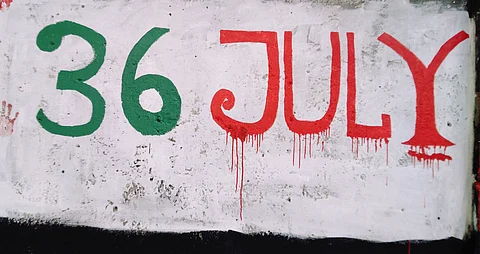

The July Revolution in Bangladesh in 2024 was fueled by outrage over systemic issues such as "quota discrimination" in government jobs, which marginalized merit-based employment opportunities for the youth.
Protesters also stood up against the "fascist Awami League S. Hasina led government," citing rampant corruption, "enforced disappearances" of opposition voices, and continuous "violent actions" by police forces alongside ruling party loyalists to suppress protesters and opposition.
These grievances united students and citizens who demanded an end to authoritarian practices and called for accountability, justice, and democratic reforms.
The government sought to suppress the protests by shutting down all educational institutions. They deployed their student wing, the Chattro League along with other factions of the Awami League party. These groups resorted to using firearms and sharp weapons against the demonstrators. The government then deployed Police, RAB, BGB and other armed forces, declaring a nationwide shoot-at-sight curfew amid an unprecedented government-ordered nationwide internet and mobile connectivity blackout that effectively isolated Bangladesh from the rest of the world.
According to the latest records of the Government of Bangladesh, the death toll in the July uprising stands at approximately 1,500, with 19,931 injured.
- Chief Adviser of Bangladesh Interim Government Dr. Muhammad Yunus November 17, 2024
As Bangladesh heals, real change begins with state institutions reformation. The strives to rebuild, Bangladesh must navigate external threats, including regional power struggles and economic dependencies that could undermine its sovereignty. The global geopolitical chaos, marked by shifting alliances and trade wars, demands careful diplomacy to secure the nation's interests on the world stage. With critical consideration, Bangladesh must balance strategic partnerships while safeguarding its resources, security, and independence in an increasingly unpredictable international landscape.